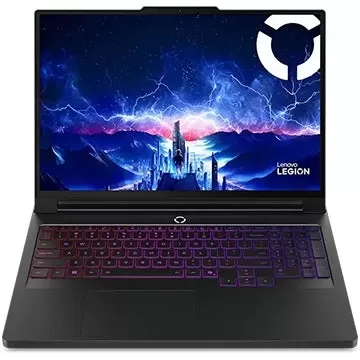Lenovo is now accepting preorders for its 2025 flagship, the Lenovo Legion Pro 7i Gen 10 gaming laptop. Packed with cutting-edge features, this powerhouse comes equipped with Intel's latest processor and Nvidia's newest graphics card, complemented by a stunning high-res OLED display and generous RAM/SSD configurations straight from the factory. While officially still in preorder status, units have already begun shipping with deliveries expected as early as late April.
Just Launched: Lenovo Legion Pro with RTX 5080

Lenovo Legion Pro 7i Gen 10: 16" 2560×1600 OLED | Intel Core Ultra 9 275HX | RTX 5080 | 32GB RAM | 2TB SSD
0$3,599.99 at Lenovo
The Legion Pro 7i delivers exceptional gaming performance with its 16-inch 240Hz OLED display, Intel Core Ultra 9 275HX processor, and Nvidia's RTX 5080 GPU. Alongside 32GB of blazing-fast DDR5 RAM and dual 1TB SSDs, this model represents a significant leap forward from previous generation flagships. Unlike the efficiency-focused Core Ultra 9 185H, the new 275HX stands as a proper successor to the i9-14900HX, perfectly complementing the RTX 5080's capabilities.
Modern connectivity options include WiFi 7 and Bluetooth 5.4, alongside versatile ports - USB-C with 140W Power Delivery, Thunderbolt 4 with DisplayPort 2.1, and USB 3.2 Gen 2 Type-A. The laptop retains practical features like an RJ45 Ethernet port and a webcam privacy shutter, all housed in a premium aluminum-magnesium chassis that balances durability and portability.
RTX 5080 Gaming Laptop: Our Hands-On Experience
While we haven't tested Lenovo's latest Legion yet, our experience with another RTX 5080-equipped laptop revealed interesting insights. The new GPU shows modest improvements in traditional rendering but excels dramatically with DLSS 4.0's frame generation tech. Our test unit, the Gigabyte Aorus Master with identical 150W TGP and 2560×1600 resolution, suggests similar performance expectations for the Legion Pro 7i.
Gigabyte Aorus Master 16" RTX 5080 Laptop Review by Chris Coke
"Nvidia's 50-series strategy clearly prioritizes AI-enhanced performance over raw rendering power. While the RTX 5080's baseline performance barely outpaces its predecessor, the difference becomes night-and-day in games supporting multi-frame generation. Though some criticize these 'AI frames' as artificial boosts, the technology delivers tangible performance gains when implemented well. Performance varies by title - Alan Wake 2 exhibits more noticeable latency at higher settings compared to Cyberpunk 2077. With emerging technologies like neural shaders on the horizon, there's merit in future-proofing your purchase, though adoption ultimately depends on developer support."



















